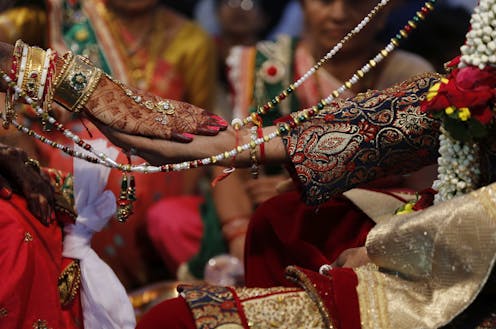A clinical psychiatrist reveals how Indian women in Australia experience family violence – and how to combat it
- Written by Silke Meyer, Professor of Social Work; Leneen Forde Chair in Child & Family Research, Griffith University

Manjula Datta O’Connor is a clinical psychiatrist and chair of the Royal Australian and New Zealand College of Psychiatrists Family Violence Psychiatry Network[1]. She has a particular interest in the mental health experiences of migrant women affected by family violence. She has been supporting women in her clinical practice for the past three decades.
Review: Daughters of Durga: Dowries, Gender Violence and Family in Australia by Manjula Datta O’Connor (MUP)

















